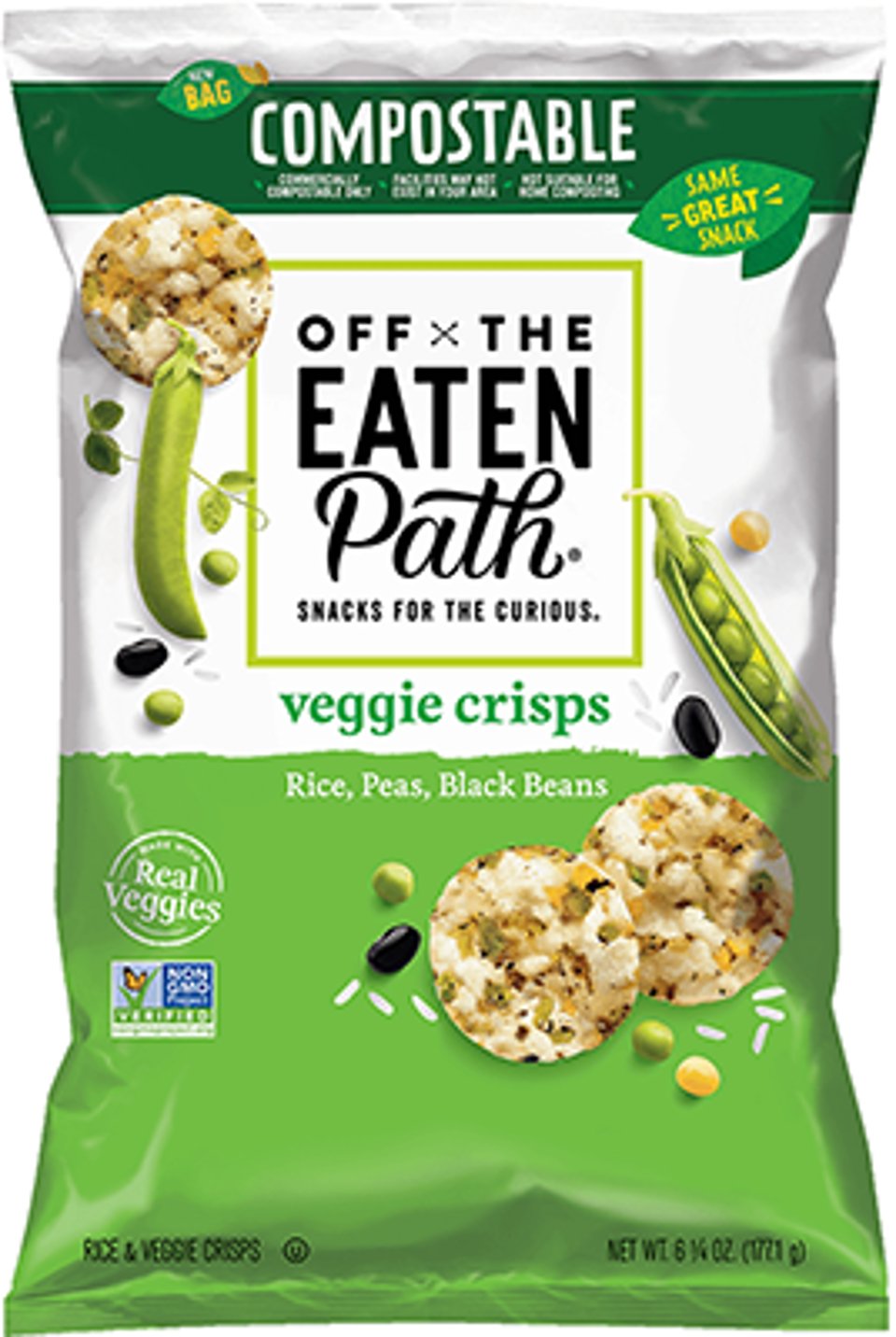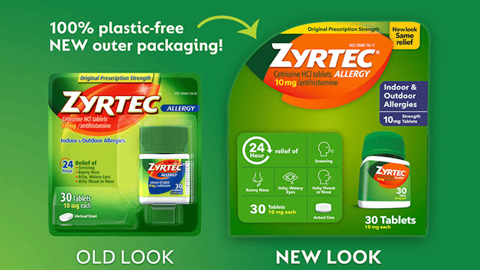PepsiCo’s Pep+ Will License Plant-Based Chip Bag Tech to Other Companies
Fresh off the heels of its latest data science ambitions, PepsiCo announced a sweeping new sustainability initiative that not only pledges to cut emissions, but also seeks partners for its new compostable packaging.
Pep+ – pronounced “Pep Positive” — is positioned as a strategic end-to-end transformation that centers sustainability in the company’s growth plan, from sourcing to selling to consumer health.
As part of this, the No. 3 publicly owned consumer goods company aims to cut virgin plastic per serving by 50% across its global food and beverage portfolio by 2030. It will use 50% recycled content in its plastic packaging and scale the SodaStream business globally to reduce the need for beverage packaging.
It’s also bringing to market a compostable bag made with plant-based materials for its Off The Eaten Path Frito-Lay brand. The bag will be available at U.S. Whole Foods stores this month, and PepsiCo will work with other companies to license the technology at no cost.
[See also: P&G Steps Up Climate Change Actions]
Ramon Laguarta, PepsiCo's chairman and CEO, described consumers’ increasing priority toward the planet and society as today’s new business reality, and he pointed to the Lay’s brand as the potential for pep+: Under the initiative, potatoes will be grown sustainably on a regenerative field, cooked and delivered from a net-zero and net-water-positive supply chain, and sold in a bio-compostable bag with low sodium levels.
“That's a positive choice. That's the best tasting, No. potato chip of the future,” he said. “That's how pep+ will be better for people, for the planet, and for our business. Now, imagine the scale and impact when applied to all 23 of our billion-dollar brands."
The program centers around three pillars:
- Positive Agriculture to increase regenerative agricultural practices and improve the livelihoods of those in the supply chain.
- Positive Value Chain to build a circular and inclusive value chain through actions to achieve net-zero emissions by 2040 and become net water positive by 2030. It will also accelerate its DEI efforts and launch a new global workforce volunteering program as part of this.
- Positive Choices to evolve its food and beverage portfolio so they’re better for the planet and people. This includes using more diverse ingredients, expanding its position in the nuts and seeds category, and hastening its reduction of added sugars and sodium.
Also as part of these efforts, all Pepsi-branded products in the United States will also be converted to 100% rPET bottles by 2030, and Pepsi Zero Sugar will be sold in 100% rPET bottles by 2022. The brand is marking the shift through a new consumer-centric platform tapping into fall football and recycling awareness themes.
[See also: Mars Forms Climate Coalition with PepsiCo & McCormick]
PepsiCo is also extending its SodaStream Professional platform into functional beverages, expected to reach over 10 new markets by the end of 2022. SodaStream is currently sold in more than 40 countries.
Jim Andrew, who was named chief sustainability officer at PepsiCo last year, has been tasked with accelerating the company’s global sustainability agenda and integrating it into its business strategy and brands. As part of this, exploring how to deliver beverages beyond single-use plastic is a key priority.
Andrew said in a statement that rapidly scaling the SodaStream ecosystem will enable the company to meet consumer needs at home, away from home and on the go while providing them with choices to use less plastic and create fewer emissions.






